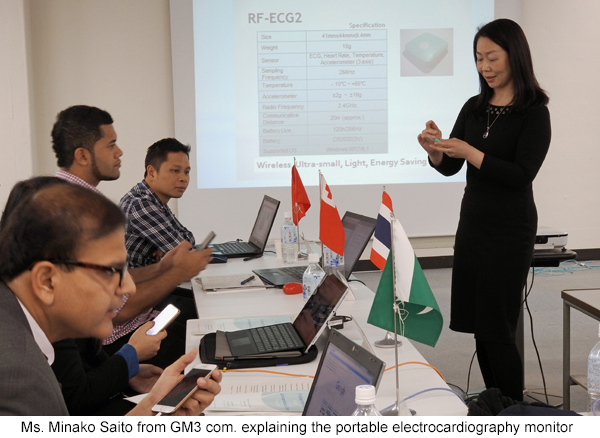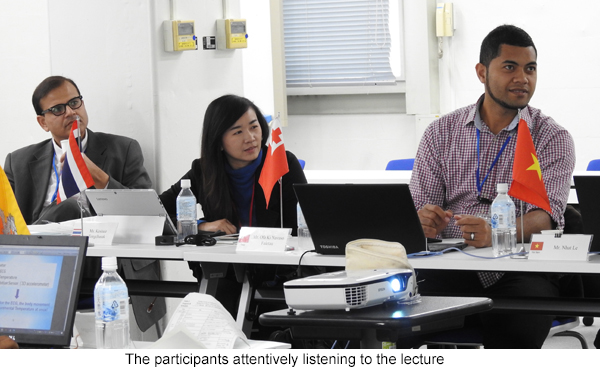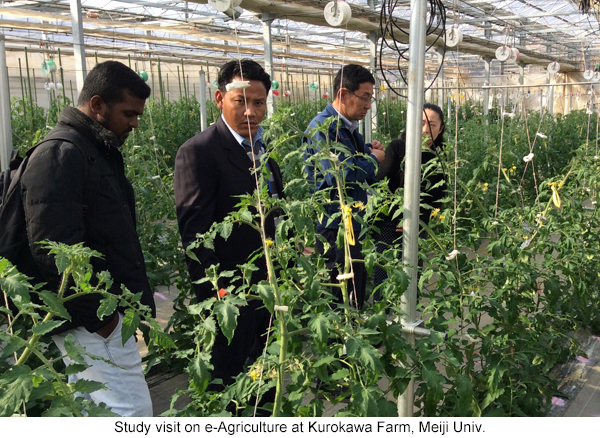Training Course (APT-J4) on Utilization of ICT Services and E-Application for Overcoming Digital Divide
2017.5.2 Tue 14:42
BHN conducted the training course “Utilization of ICT Services and E-Applications” focusing on E-Applications supporting the Smart Society such as Medical ICT, Sensor Networks and Agriculture/Fisheries ICT, between March 7 and 17, 2017.
In the training course there were lectures and site visits for the purpose of helping the countries and areas still having more room for improvement in the areas mentioned above, specifically by spreading the use of ICT which would help solving the regional problems.

Background
Japan is a country which is currently tackling major issues such as declining birth rate, aging population, shortage of doctors, managing disasters and the declining regional economies. One of the methods for tackling such problems is to make maximum use of local ICT applications. Toward this end, there are applications already introduced or under feasibility test in Japan and it is expected that they would provide good showcases for other Asian countries. In many Asian countries, while the infrastructures for broadband communications through mobile communications and optical fiber communications are being built, there are still many issues that should be addressed, for example, regional disparities in medical services and education, and seemingly low awareness of the importance of information security.
Participants
One participant each from Bhutan, India, Maldives, Mongolia, Nepal, Niue, Pakistan, Thailand, Tonga and Vietnam attended the training course and they were awarded the training certificates from BHN president upon completion of the training course.

Lectures and Study Visits
The participants have learned actual examples of ICT utilization. Based on the knowledge acquired in the training course, they can now investigate implementing similar systems meeting the requirements of their countries. ICT applications are expected to contribute to overcoming the digital divide if they are introduced into rural areas, in such fields as; disaster management; tourism and transportation; environmental monitoring; medicine and welfare; agriculture forestry and fisheries.
Specific themes and model systems dealt with in the training were as follows:
1) Telemedicine, Remote Medical Care and Watching System
2) Machine (M2M) and Sensor Network Technology
3) Disaster Management System by utilizing ICT
4) Environment and Agriculture/Fisheries Monitoring using ICT

Result
The program was received by the participants as well-organized and eye-opening. The lectures below were especially highly praised by the participants:
> ICT Utilization and Information Security Policies
> Telemedicine and Disaster Risk Reduction
> Study visit for observing telemedicine being actually practiced, where a pregnant woman was remotely monitored by a doctor
We hope the participants will bring back what they learned about ICT utilization in this program and make good use of it to improve social systems by better utilizing ICT.
